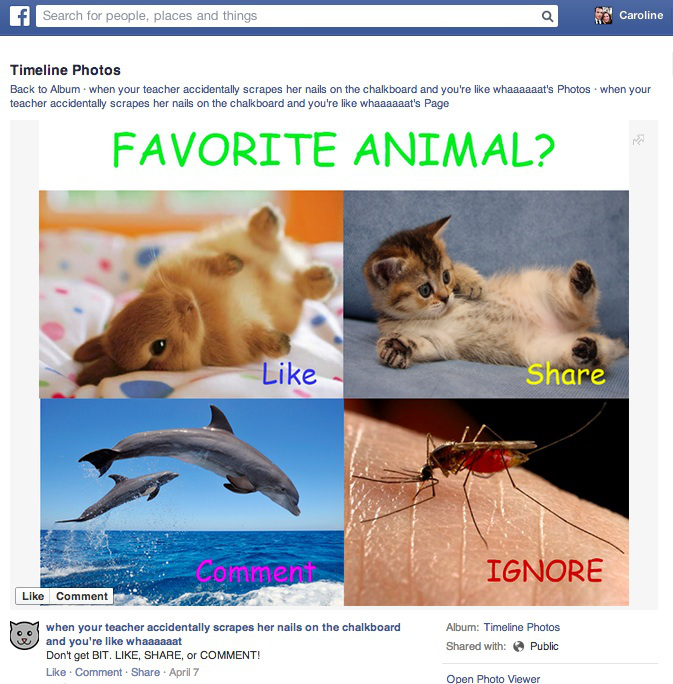Image via Sarawut Aiemsinsuk/Shutterstock
So long, like-baiting, repetition and dubious links – Facebook has announced improvements to combat unwanted ‘spammy’ posts from Pages trying to game the News Feed.
“The goal of News Feed is to deliver the right content to the right people at the right time so they don’t miss the stories that are important and relevant to them,” begins a blog post from Facebook explaining these updates.
There are three types of post that will be targeted.
The first are the ‘like-baiting’ posts that ask readers to like, comment or share to gain further attention. This disrupts the natural order of things at Facebook, which uses algorithms to surface relevant content based on what’s popular within a user’s network of friends.
Posts begging for engagement get an undeserved boost – a like or share because it was asked for, not because of the quality of the content – which leads to a low-quality News Feed and takes away from the user experience. On average, Facebook users surveyed found like-baiting posts to be 15pc less relevant than other posts with a comparable number of likes, comments and shares.
Facebook claims it can not only better detect these stories but that it can also differentiate between them and posts that are genuinely trying to encourage discussion among fans. You can see what’s really being targeted in the example below.

Pages repetitively adding the same photos and videos over and over will also be targeted, as Facebook discovered that dialling back their emphasis in the News Feed led to 10pc less posts being hidden by users.
Finally, spam that tricks users to click links that lead to somewhere unexpected, such as an ad-filled site, will also be less likely to show up on your News Feed. These posts will be detected by monitoring how many people both click a link and like or share the original post. Facebook claims initial tests saw a 5pc increase in people clicking third-party links with these changes.
While these are all welcome changes for users, page-owners will no doubt be sceptical that they could be detrimental to their reach. Even genuine pages distributing content according to the rules have been adversely affected by Facebook quelling organic reach in order to encourage more paying advertisers.
Facebook engagement image by Sarawut Aiemsinsuk via Shutterstock